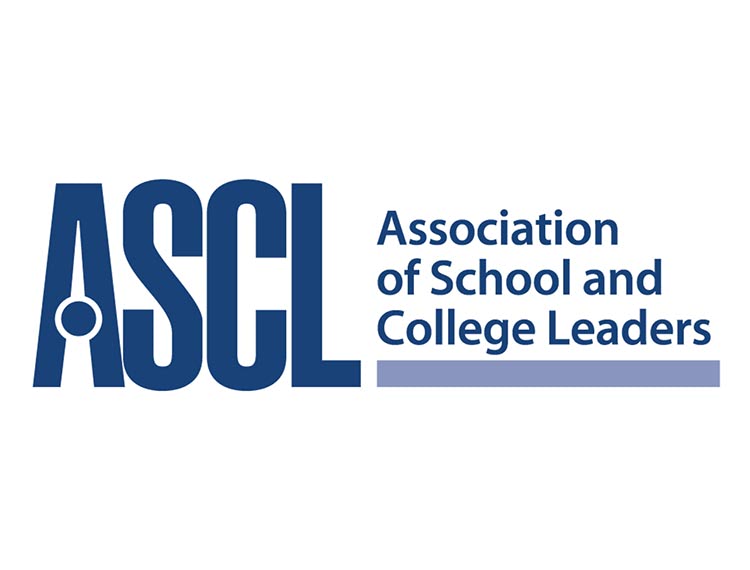Struggling students are ‘completely demoralised’ by tough new #GCSEs

Eight in ten school leaders say that tough new GCSEs are having a detrimental impact on struggling students, according to a survey by the Association of School and College Leaders (ASCL).
One deputy headteacher said: “Lower attaining students are completely demoralised by these new exams. We have an increasing number refusing to attempt mocks and actual exams. This has never happened before.”
An assistant headteacher said: “These have been designed without a thought for low prior attaining or SEN students. I cannot think of anything more dispiriting than going through school thinking every day: ‘I cannot do this’. But that is the reality for many students.”
And another deputy headteacher said: “There was a need to reform GCSEs. However, making them harder by massively increasing the quantity of material, the length and number of exams, removing controlled assessment, and increasing the amount that must be memorised all disproportionately hits the most vulnerable students.”
Reformed GCSEs, designed to be more rigorous and with a new 9-1 grading system, have been introduced in phases since 2015, beginning with English Language, English Literature and maths, in which new exams were sat for the first time in 2017.
ASCL conducted a survey of 554 school and college leaders in England in July in which almost all respondents (98%) said the new GCSEs are more difficult than the previous specifications. The most commonly cited factor in this increased level of difficulty was that the new GCSEs contain more content, followed by students having to remember more, and harder exam questions.
Respondents were asked whether there are benefits and whether there are disadvantages.
The most commonly cited benefit is that the new GCSEs better prepare students for the next phase of education and careers (46%), followed by a greater level of challenge being more fulfilling for students (22%). However, some respondents pointed out that the greater level of challenge benefitted only the most able students, while more than a third of respondents (35%) said there are no benefits.
The disadvantages greatly outweigh the benefits with 80% saying that students with lower prior attainment are detrimentally affected, and 79% saying the new qualifications are causing higher levels of student stress.
Geoff Barton, General Secretary of the Association of School and College Leaders, said:
“The findings of this survey reflect widespread concern that reformed GCSEs have sacrificed the interests of the most vulnerable students for the supposed benefits of raising the bar for the most able students.
“The government has seen increased rigour as an end in itself without fully considering what it wants the exam system to achieve for all students of all abilities. As a result, we now have a set of GCSEs which are extremely hard to access for students with lower prior attainment. This is incredibly stressful and demoralising for these young people.
“We need a system which allows every young person to finish their schooling with qualifications of which they can be proud. It is absolutely right that we aspire to the highest standards for all our young people but serving up a diet of exams which erodes the confidence of a large proportion of young people is surely not the way to achieve this objective.
“In the immediate future we do need to see if there are ways these qualifications can be tweaked to improve their accessibility to all students and make them less of an ordeal, and in the longer term we simply must review the exam system to find a more humane way in which we can assess the abilities of young people and prepare them for their lives.”
Comments by school leaders on the difficulty of the new GCSEs:
-
“A large proportion of students are being failed by the new GCSEs. Not everyone is suited to them and, while they may be a good pathway for those students going onto A level or degree level, they are simply not fit for purpose for students who may thrive with a more vocational route. These students are made to feel they are constantly failing no matter how hard they work because they struggle to retain the list of endless facts they need for their exams.”
-
“Challenge is good, we all thrive on challenge, but when you have exams taken by all 16 year-olds but designed only for the brightest, you leave a lot of children demotivated and demoralised when they don’t get the magical grade 4 or above.”
-
“Learning the sheer volume of content and then remembering it over two years is very challenging for some of our young people.”
-
“Making exams harder doesn’t make kids smarter or more employable. It does make them more stressed, anxious and depressed – especially those from disadvantaged backgrounds.”
-
“The difficulty of reformed GCSEs places undue stresses upon students and staff. The sheer volume of examinations in such a short space of time leads to tired and weary students halfway through the exam period. It is soul-destroying to see students who have worked hard and prepared but are then unable to cope with the volume of examinations.”
-
“There is nothing wrong with being ambitious for our children and young people but this feels punitive. Mental health in our communities is an increasing concern and cost to the NHS. I have never had so many young people presenting as vulnerable as now.”
-
“Whilst the exams are difficult, it is the breadth of content and the number of papers which lead to untenable pressure on students. Why does a 16 year old need to sit between 23 and 27 papers? Why do they need to be examined for seven and a half hours in English?”
Modern foreign languages
In July, the British Council Language Trends Survey 2019 found concern that the difficulty of exams was contributing to declining number of pupils in England taking languages at GCSE and A level.
We asked our respondents whether the difficulty of the new GCSE specifications is deterring students from taking modern foreign languages, and nearly three-quarters (73%) said that this is the case. Nearly a third (31%) said that students were also being deterred from taking other subjects perceived as being difficult.
The GCSE qualifications perceived as being most difficult were French (85%); physics (69%); German (68%); maths (61%); Spanish (58%); and computer science (54%).
A levels
Our survey also contained a set of questions about reforms to A levels which have also been introduced in phases since 2015. These questions were answered by 383 respondents whose schools and colleges teach A levels. Of these, 82% felt that the new qualifications are more difficult than the previous specifications.
The most commonly cited benefit is that the new qualifications better prepare students for the next phase of education and careers (42%), but nearly a third (30%) said there are no benefits.
Disadvantages again outweigh benefits with 64% saying the new qualifications cause higher levels of student stress; 54% saying students need higher grades in GCSEs to be able to undertake the new A levels; and 51% saying that students are deterred from taking modern foreign languages by the difficulty of these qualifications.
The A level subjects perceived as being most difficult are physics (62%); maths (61%); French (59%); chemistry (55%); German (50%); and Spanish (43%).
The survey: Conducted in July 2019 by sending out an email to approximately 6,000 ASCL members in England. 91% of responses were from state schools, 6% from independent schools, and the remainder came from colleges and other settings. 37% came from executive headteachers/ headteachers/ principals, 49% from deputy and assistant headteachers, and the remainder from other senior leaders. Exam results 2019 survey results











Responses